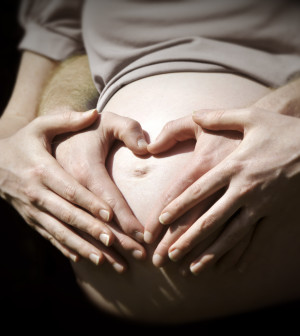- 8 Ways to Increase Dopamine Naturally
- 7 Best Breads for Maintaining Stable Blood Sugar
- Gelatin vs. Collagen: Which is Best for Skin, Nails, and Joints?
- The Long-Term Effects of Daily Turmeric Supplements on Liver Health
- Could Your Grocery Store Meat Be Causing Recurring UTIs?
- Are You Making This Expensive Thermostat Error This Winter?
- Recognizing the Signs of Hypothyroidism
- 10 Strategies to Overcome Insomnia
- Could Artificial Sweeteners Be Aging the Brain Faster?
- Techniques for Soothing Your Nervous System
Health Risks, Costs Much Higher With Multiple Births: Study


MONDAY, Nov. 11Multiple pregnancies are a major health issue involving significantly greater health risks for both mothers and babies and much higher medical costs, compared to pregnancies involving only one baby, a new study finds.
Researchers looked at data on nearly 438,000 births by U.S. women aged 19 to 45, between January 2005 and September 2010. Of those births, 97 percent were single babies, about 2.85 percent were twins, and 0.13 percent were triplets or more, according to the study appearing Nov. 11 in the American Journal of Obstetrics & Gynecology.
Average health care costs were over $400,000 for triplets or more, $105,000 for twins and $21,000 for singletons. That means that the costs for triplets or more were 20 times higher than for singletons. The costs included medical expenses during the 27 weeks before and up to 30 days after delivery, said lead investigator Dongmu Zhang, with global health outcomes for Merck & Co., and colleagues.
For singleton pregnancies, maternal-related expenses accounted for 60 percent of overall medical costs. On the other hand, for pregnancies involving twins or triplets and more, infant-related expenses accounted for 70 percent and 85 percent of all medical costs, respectively, Zhang explained in a journal news release.
Women with twins or more were much more likely to have co-existing health conditions than those with singletons, the study authors noted. Mothers with twins or triplets or more also had longer hospital stays for delivery and a higher death rate (although the overall risk of death was small).
Multiple pregnancies are increasing worldwide due to increased use of assisted reproductive technologies such as in vitro fertilization (IVF), the news release noted.
For women undergoing IVF, the risk of multiple pregnancies is mostly due to multiple embryo transfer. Strategies meant to minimize multiple embryo transfer should be considered to reduce the extra costs and risks associated with multiple pregnancies, Zhang and colleagues concluded.
Three percent of all infants born in the United States in 2010 were multiple deliveries. The birth rates for twins was 33 per 1,000 total births, and for triplets and more, the rate was 1.4 per 1,000 births, according to the U.S. Centers for Disease Control and Prevention.
More information
The March of Dimes has more about multiple pregnancy.
Source: HealthDay
Copyright © 2026 HealthDay. All rights reserved.










